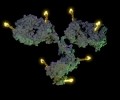Astraveus raises €16.5 million to advance cell and gene therapy manufacturing platform

The funding round was led by AdBio partners, co-syndicated with M Ventures, Johnson & Johnson Innovation – JJDC Inc, and Bpifrance Large Venture.
Astraveus’s Lakhesys platform is an end-to-end cell foundry, that uses deep process optimization and single-use, microfluidic bioprocessors to deliver better results with reduced inputs.
By removing the need for large-scale infrastructure, reducing costs and processing time, and overcoming the logistical challenges associated with CGT manufacturing, the company is seeking to widen patient access to these life-changing therapies.
The recently completed financing will allow Astraveus to significantly advance the development of its technology and expand the team.
At the core of Lakhesys are microfluidic bioprocessors, which mimic organ perfusion and significantly accelerate the molecular exchanges needed to sustain and transform cells into potent therapeutic agents.
The high degree of precision and miniaturization enabled by microfluidic bioprocessors allow more efficient manufacturing, reducing labour, floor space and energy requirements, thereby generating less waste and making the process cheaper and greener.
While CGT is a young market, it has received considerable investment - an average of $18 billion per year since 2020, but the high per patient cost of up to $2m has been a brake on both development of new therapies and deployment of those already identified.
By minimizing the changes between process development and the clinic, and offering an immediate modular scalability, Lakhesys claims to save ‘critical time and cost’.
Following the fundraising, Alain Huriez of Adbio partners, Christian Uhrich of M Ventures, Fiona MacLaughlin of JJDC Inc., and Laurent Higueret of Bpifrance Large Venture will be joining the board of Astraveus.
Jérémie Laurent, founder and CEO of Astraveus, said: "Astraveus has an ambitious vision to revolutionize the development and commercialization of cell and gene therapies. By reducing costs, increasing precision and driving scalability, we are enabling the realization of the full potential of these therapies and making them accessible to a far wider audience of patients."











